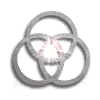Contact Us
Need Help Now?
Call 604-987-1797

Alternative Healing Arts Directory
"Acupuncture has, without a shadow of a doubt helped in a great way to correct those issues, bringing back the balance in the body which has been out for so long. My personal view of myself now is completely different being more assertive, confident, less anxious, determined to do something positive with one's life. When I detoxified before I remained clean for 7/8 weeks and through that time I was timid, shy as well, thoughts of what was the point of carrying on all solved with one hit or dose. The other thing I find with seeing my acupuncturist is I see her as my therapist as well. Every time I have treatment we initially spend 5/10 minutes on talking about how I am, any problems, cravings, which after my 2 3rd session have subsided to nothing, care of addiction/endorphin points in acupuncture."
A client's perspective
 |
Ricardo B. Serrano, R.Ac. Click to Enter |
 |
Acupuncture Treatment for Substance Abuse
As an acupuncture detox specialist, I would like to address the alcohol and drug addiction problem in our community with relevant historical information on how it is treated from an acupuncture perspective as a much needed adjunctive natural therapy to the existing counselling and self help groups (with harm reduction models) that we have now here in Vancouver.
The following information would also explain why acupuncture would be one alternative health service option as an available resource that could be integrated with the already established existing alcohol and drug program or counselling centers. Given the economic and social devastation of the current drug addiction problem here, however, we are perhaps well advised to consider it objectively, with an open mind and without prejudgement. Let me quote a Chinese proverb: "The methods used by one person may be faulty; the methods used by two people will be better."
Almost 400 detoxification programs in the U.S. and Europe have been modelled after the one at Lincoln Hospital, New York City where psychiatrist Dr. Michael Smith and his staff treat 250 addicts a day with auricular acupuncture. The theory behind that practice holds that the entire body can be affected by stimulating points on the ear. Dr. Smith has observed that withdrawal symptoms and cravings abate within minutes of the treatment. Equally important says Smith, is a reduction in panic and hostility commonly seen in drug-treatment settings -- changes that make addicts more amenable to counselling. "We're not claiming that acupuncture is a magic bullet," he points out. "We're claiming it's valuable in combination with counselling."
In 1985, the National Acupuncture Detoxification Association (NADA) was founded by clinicians who wanted to extend the example of Lincoln Hospital experience into other treatment settings. NADA sets standards of certification for acupuncture detox specialists that are widely accepted in the field of chemical dependency. I am one of the first NADA certified acupuncturists here in B.C. where acupuncture is a legalized primary health care profession.
In the U.S.A., chemical dependency professionals in both the private sector and the criminal justice system have taken a keen interest in the work done at Lincoln Hospital and other NADA affiliated programs. The introduction of an acupuncture component to an existing program provides a cost-efficient method for providing non-residential treatment to large numbers of drug dependent people, while increasing the effectiveness of existing services.
Regardless of the setting, and the substance abused, acupuncture treatment aids in patient detoxification. It does so by supporting the main organs of elimination in the body, speeding the body's ability to rid itself of toxins.Treatment improves mental clarity and ability to focus. It also provides the patient with a sense of calmness and serenity. This creates a greater receptivity to the counselling process and decreased instances of clients' "acting out".
One of the non-criminal-justice speakers at the 1991 NADA conference was Robert Olander, Commissioner of Chemical Health for Hennepine County, Minnesota. He suggested that there have been three "benchmarks" in the history of alcohol and drug treatment in the United States, three things that have revolutionized the way we do alcohol and drug therapy: first was the founding of Alcoholics Anonymous in 1935; second was the development of pharmaceuticals in the late 1950s and early '60s, and the third is acupuncture.
As shown in the epidemic of drug addiction related problems such as increased cases of HIV infections, increased criminal offenses and increased number of mental health dual diagnosis clients, traditional western chemical dependency treatment, unassisted, is a rather bleak landscape. Its proven effectiveness depends most upon clients remaining in treatment for a long time, and yet treatment drop-out is too often the norm. Some long term follow-up studies have found that even lenghty treatment stays ultimately produce low success rates.
There is a saying, "If the only tool you have is a hammer - you tend to treat the world like a nail."
Help is needed, and acupuncture has much to offer.
Published in the North Shore News Health section (August 15, 1999)

All funding for the site comes from donations from clients. This site receives no advertising revenue.